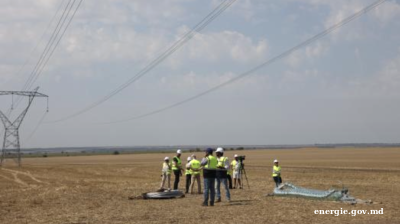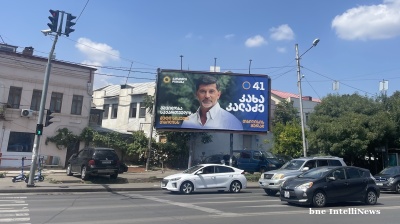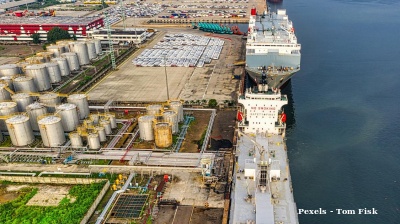On July 26, Taiwan witnessed the culmination of an unprecedented political moment - the largest recall vote in its history, which ended in a decisive failure for the ruling Democratic Progressive Party (DPP) and delivered a measure of political humility for President William Lai (Lai Ching‑te), even as his own party and DPP supporters around the nation and online were quick to urge caution in interpreting the outcome.
Recall campaign aims & legal thresholds
Voters were called to the polls to consider the removal of 24 Kuomintang (KMT) legislators, widely characterised by recall campaigners as “pro‑China”, alongside Mayor Ann Kao of Hsinchu City, who had been suspended since July 2024 following a corruption conviction.
Under Taiwan’s Public Officials Election and Recall Act, for any recall to succeed two conditions must be met: (1) votes in favour must exceed votes against, and (2) support must reach at least 25% of all eligible voters in that constituency.
Results: Failure across the board for the DPP
As ballots were counted, on the evening of July 26, however, none of the 24 KMT legislators were recalled. In only six constituencies did pro‑recall votes meet the 25% threshold - and even in those, the “no‑recall” votes outnumbered the “yes” votes local news sources report. The recall effort targeting Mayor Kao similarly failed to achieve both criteria, Focus Taiwan reported. As the same publication said “It was a major defeat for the ruling DPP and civic groups pushing the recall votes.”
Crucially though, with voter turnout notably high for a recall vote, the results indicated not just low support for removal, but active opposition to the DPP’s now overused and tired political ‘go-to’ of labelling the KMT as pro-China and anti-Taiwan.
Political fallout
As such, for the DPP, the result represented a significant setback. Had at least 12 KMT legislators been recalled, the DPP stood to reclaim majority control of the Legislative Yuan; with every recalled seat triggering a by‑election, political analysts saw that as a possibility even if a somewhat remote possibility in strong KMT regions.
Instead, the KMT–TPP alliance retains legislative control, continuing to block Lai’s defence and judicial reform bills which in turn may now affect Taiwan’s relationship with the US over military supplies.
After the results were known, KMT chairman Eric Chu hailed the vote as a triumph for Taiwan’s stability and democracy, calling on Lai to acknowledge the result by apologising to the people of Taiwan while reflecting on his method of governing Reuters reported. The KMT further said that the recalls reflected public rejection of partisan tactics rather than endorsement of their China‑facing policy positions.
Why the recall failed
Political scientists and media pundits throughout much of Saturday evening, July 26, and into Sunday July 27 attributed the collapse of the recall drive to several factors:
-
Backlash against polarising rhetoric: Analysts argue that the DPP’s aggressive framing of the campaign as a purge of “pro‑China elements” alienated moderate and swing voters, who were wary of escalating political polarisation.
-
Recall fatigue: Two consecutive recall efforts by supporters of the DPP - following a July Nantou local recall, and this mass legislative drive - appeared to generate public weariness with constant political campaigning.
-
Well‑organised incumbents: Many KMT lawmakers hail from constituencies with entrenched local support, making removal inherently difficult for civic groups lacking deep grassroots networks.
Interpreting the vote
Despite its failure to reclaim the legislature, the recall vote, can, at a stretch perhaps, be read as a vote of confidence in President Lai - but in subtle terms. Rather than repudiating Lai personally, the electorate appears to have rebuffed what it saw as DPP‑driven political overreach. By rejecting the recalls, voters signalled support for Taiwan’s democratic process, which Lai - wisely - had urged be respected.
In his remarks post‑vote, Lai emphasised that the recall mechanism was part of Taiwan’s constitutional framework, advancing democratic accountability.
Nevertheless, DPP leaders were more circumspect. Secretary‑General Lin Yu‑chang accepted the defeat “humbly”, insisting that the recall results should not be cast as a head‑to‑head victory or defeat between parties. He acknowledged public disquiet, promising deeper reflection on the party’s tone and tactics CNA reported. As such, the DPP’s message was borne more out of hope than reality and while the outcome limits legislative progress, it does not necessarily reflect on cross‑strait policy or Lai’s broader mandate.
The KMT as the victors on the day meanwhile released a statement titled: “The people of Taiwan have spoken – again” and reading in part “in the recall vote held today, the people of Taiwan once again demonstrated the strength and resilience of Taiwan’s democracy. Voters decisively rejected efforts by the ruling DPP to overturn the results of the 2024 national elections.”
Naming President Lai, the KMT added that the party “underscores that this landslide victory reflects growing public dissatisfaction with President Lai Ching-te’s decision to prioritise political retaliation over urgently needed governance. At a time when Taiwan faces serious and complex challenges, including national defence, economic resilience, energy stability, and citizens’ livelihoods, the government’s focus on divisive political manoeuvres has drawn widespread disapproval.”
Ending “the KMT reaffirms its longstanding commitment to upholding democratic values, preserving institutional checks and balances, and protecting the rights of all citizens against political intimidation and one-party dominance. We stand with the people of Taiwan in their call for stability, competence, and inclusive governance” Taiwan’s main opposition now goes into a second round of recalls on August 23 targeting another seven KMT legislators.
For President Lai meanwhile, the key challenge now lies in regaining public trust through less confrontational strategies and steadily addressing pressing issues such as defence readiness, economic resilience and energy supply - areas critics say have for too long been overshadowed by recall politics.
Features

World GDP forecasts raised, but US slowdown anticipated - Fitch
Global growth is now forecast to be 2.4% in 2025, up 0.2pp since June but a sizeable slowdown from 2.9% last year and below trend.

Moldova’s dramatic energy sector transformation
Chisinau ended decades of dependence on Russia in just four years — but will the upcoming general election derail the remaining reforms?

Local elections loom in Georgia
Georgia’s October 4 municipal elections are already mired in controversy amid a partial opposition boycott and mounting state repression, as major international observers refuse to participate.

Iran's nuclear materials 'Under rubble of attacks', Foreign Minister claims
Iran's Araghchi says that the only nuclear site currently accessible is the Russian-controlled Bushehr nuclear power plant in his meeting with the IAEA.


